
Hello again, and welcome to the series The Making of a Development Team. In past posts, I met with developers and business development. Today, I had the pleasure of catching up with Kelsey Hilbers, who is a delivery lead here at Labs. From what I have seen of all of our delivery leads, they do serious behind the scenes work to make sure all parties are working together to deliver a sound product. Throughout the ups and downs of any project, they are the cog in the wheel.
What I love about Kelsey (we call her Kelso) is that apart from being a great friend, she is always calm and able to provide perspective. She definitely doesn’t brag about herself, but, as you will see, she is an incredibly interesting person, and her ability to adapt and be calm in the middle of uncertainty makes her very good at what she does.
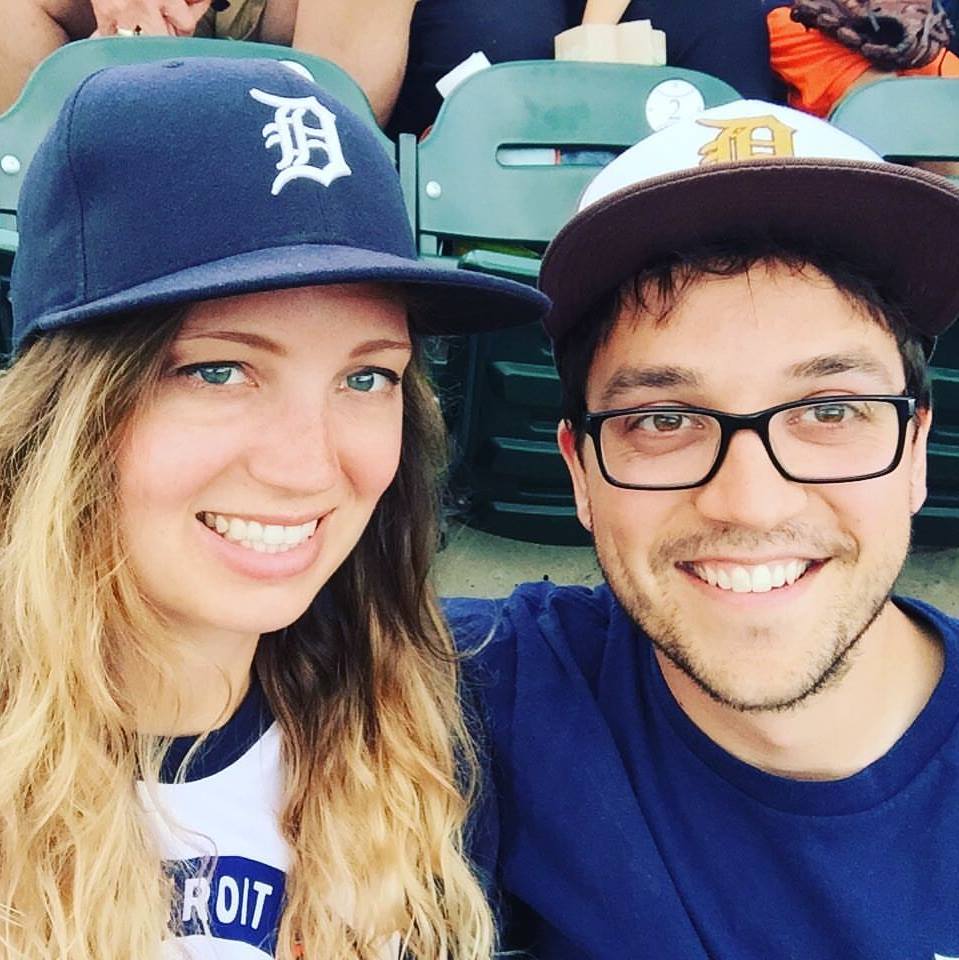
Hello, Kelso! Tell me a bit about yourself.
I am originally from Michigan, though my parents are not. My family ended up in this area because my grandpa was from Detroit. I grew up on a lake, which was awesome. I don’t really remember learning how to swim because I was so young. I had my first job as a swim instructor and I did that for two years but then was a lifeguard over college summers.
I went to college at Richmond, the American International University in London, after which I was in DC, then the Peace Corps. I served in Bulgaria and absolutely loved it. I traveled the world, made the move to an incubator in San Francisco, and then eventually Detroit Labs when I moved back to Michigan (again).
I am a delivery lead here, which is similar to a project manager, but it’s really very different. My job is not what people might think. I don’t tell people exactly what to do, and when to do them. As a project manager, you are in control of making sure things happen. Here, we collectively work together to move a project forward as a team. How it gets there, is what I have to figure out.
Having a lot of the flexibility and ability to lead people from one place to another is a lot of what I learned in the Peace Corps, and traveling, too, if you think about it. I had a trip where I was going from Macedonia to Montenegro to Slovenia, and I just needed to figure out how to get there. Bus, to plane, to train. From A to B by any means necessary.
What was it like growing up while studying abroad?
I first studied abroad in pre-K. I started school in Italy. My dad was working for Fiat and got transferred over there. I started at an Italian preschool in Torino where they didn’t speak English, which didn’t seem to work out so well for me. Fiat fixed my situation, and then paid for my private school, where they spoke English, for two years. After that, I came back to Michigan and finished all the way through high school here, which I was never a huge fan of. It kind of always just felt boring. That’s why I left for college and went to Richmond, I knew I needed a change and figured it was as good a time as any. Turns out I feel much more at home when I’m not in the United States.
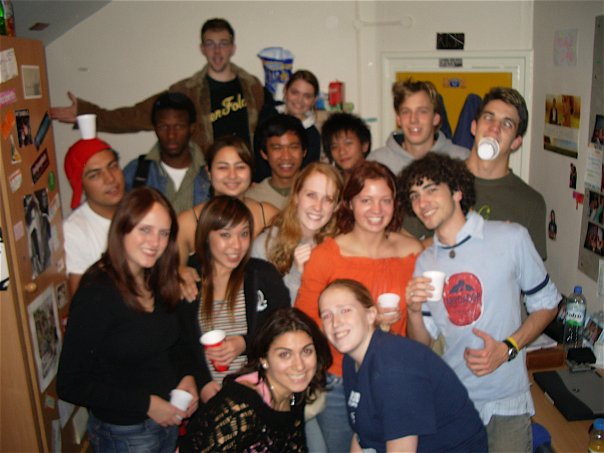
What did you study in school, and how did that translate to your internship and work in the Peace Corps?
I studied International Business and Economics. When I was able to pick degree electives for my junior and senior years, I was most interested in courses about economics in developing countries and globalization in the EU. I started my year-and-a-half-long application process for the Peace Corps while I was still a senior at Richmond because I realized my business interests were not traditional.
When I first left England, I was in Detroit, then I moved to DC to work for the International Labor Rights Forum, a labor rights nonprofit. I was an intern at the same time as the World Cup, so my job was to research: who manufactures world cup soccer balls, do they have unions, do they have labor rights, do they use children to make the products? A lot of companies say that they have policies in place, but they don’t actually give bargaining rights to employees to change their working conditions. My job was to write reports on that. My reports were centered around Puma and Adidas.
During that internship, I was accepted to the Peace Corps and left for Bulgaria. I kind of always knew I didn’t want to work for a giant corporation. I really wanted to work somewhere that I could use my education to do better things for people. The Peace Corps was the perfect next step. In the Peace Corps, I ended up working in the mayor’s office.
The worst part of culture shock is always coming back to the US. Going to Bulgaria, you are expecting things to be different, you are expecting things to be uncomfortable, hard, and challenging. It’s the hardest job you will ever love. It’s so true; physically and emotionally hard. But the most difficult is coming back to the US for sure because you are expecting it to not be weird. You are going home, so you don’t really think that you’ve changed enough for it to never be the same again. My mom warned me about it, because when they moved back from Italy she went through the same thing.
For a few weeks, maybe a few months, people will ask you about your experience. After a few months or so, they will stop asking and forget, but you never will. If I continue to talk about it, it doesn’t really die. I still celebrate Bulgarian holidays, make Bulgarian food. When you’re there, when you’re in it and in the Peace Corps, you do work. Your first goal is to work in the program that you sign up for, but most of what you actually do? You let other people in the world understand what a real American is, not the Kardashians, not Donald Trump, not Hillary Clinton, but an actual citizen. The whole idea is that you share part of yourself and in return learn about them, and take it back to the States. Showing Americans what other people in the world are really like. It’s the second two that are the most fulfilling, and easier because all you have to do is talk to people.
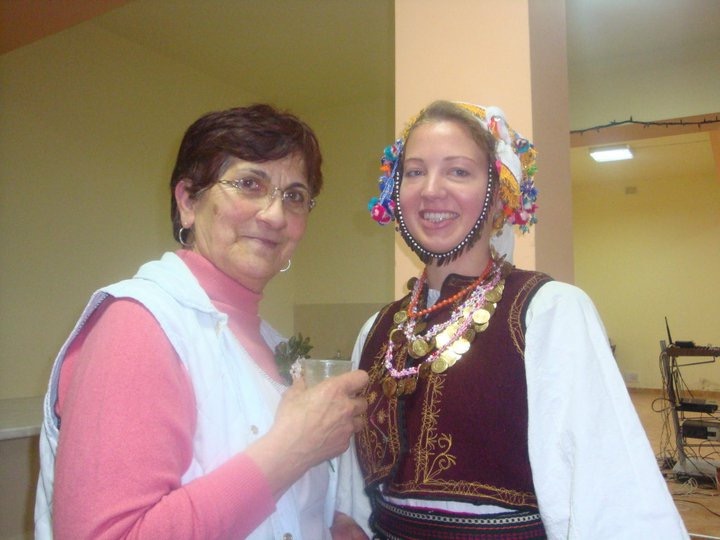
Ok, so fast-forward a bit, you were in California. What was that like?
I have never found a city that I love more than London, so it’s been hard to find a city that can match up. I went to Chicago for a weekend soon after returning from school in London, and I was so unimpressed. I originally moved to San Francisco after Peace Corps because some volunteer friends thought I would like the Pacific Northwest, and that’s what I chose.
I really liked living there, and my friends there, but the professional scene in San Francisco is so pretentious that I couldn’t handle it. To go from the Peace Corps to a very homogenous environment at a recruiting agency was a struggle.
Next, I worked at a startup incubator, which was way better, but I kind of already had a foot out the door when I got there. I worked for the owner and was the building manager. It was a different area of the city. This was over in the Mission, a more laid-back area. I was between jobs when I came back for Thanksgiving that year and I cold-emailed a lot of small companies in the Detroit area to get a tour. Nathan didn’t write me back until I got back to San Francisco so I interviewed from the incubator’s quiet phone call booths. There was so much exciting stuff going on in Detroit at the time, I figured I would be upset if I left the country and didn’t come back to Detroit when all of this was happening here. A bit full circle.
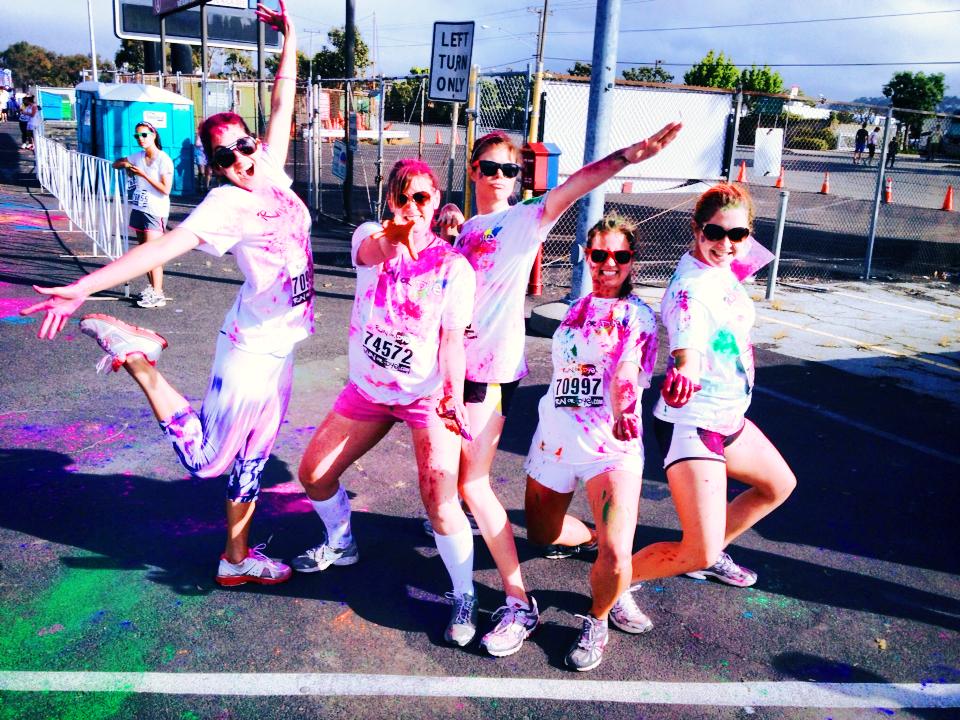
Getting back to Labs, applying skills learned from Peace Corps and San Francisco, how have they helped here?
A lot of what they tell you in Peace Corps training is about being flexible and adapting to new environments. It’s not fun to have someone tell you that you have a press conference or a meeting in five minutes, but once you get used to being able to adapt to those things it makes life easier.
In terms of planning, I’ve been on a few long-term trips where you’re going from one point to another and you need everything to line up correctly in order to get from one place to another. Planning all of that ahead of time, making sure you have time for buffers, having that idea and roadmap in your head helps. Also knowing that the roadmap is NOT going to workout the way that you think it is in your head and being okay with that. Which comes back to being flexible and being able to adapt to things.
I think knowing how to talk to people who view life from a different viewpoint that your own is the next most helpful skill I’ve learned. Knowing that everyone is different and people will react to things differently than you will. Just know to expect these differences and that they’re okay is good.
All of these things apply to my job here. The technical things I had to learn, but the rest applies.
What have been your proudest moments?
Our intern project started with me, four devs, and David Klawitter as the designer. It was really fun to start, finish, and ship it. I also got to meet the Chief of Police and the Mayor of Detroit. I was also shadowing at the same time, but it was nice to have this one thing that I did and worked on and shipped and it was successful. And releases and updates have happened, too, so it is still alive and well.
You, Stuart Kent, and Bryan Kelly have been the driving force for open source initiatives here at Labs. What sparked the interest? Why is open source important to you?
So I think what drew me to it, once I figured out what it was, it almost seemed like the happy hippie shit of the developer world… I needed this in my life. It seemed like the way to give back to an industry that definitely needs to make things more accessible, easier to learn, bring people into the tech environment, and to have that information out there.
It’s hard because there’s not a ton that someone without a technical background can do, but I was really happy that it’s started, and working, and think it’s a great thing for us to stand for.
I went to MindTrek in Finland and it was awesome. There was a good speaker from the Vatican talking about how they are open sourcing their entire collection to the public (museum, storage, and in the Vatican), 3D scanning everything, pages, etc. They aren’t using OS software to do this, but they are making it open data/information.
They also had someone from the EU speak, and they were opening up all of their data as well. They mentioned how they have to use these massive, massive servers to get everything available. A guy was there who was building a robot and open sourcing all of that software. Each piece is small enough to be made with a makerbot. So with a robotics team you can print them and slowly link them together. MindTrek had another track of talks, which unfortunately were not in English, where local cities talked about what data they were opening up to the public, and what sort of software they were hoping came out of it.
What initially made it sound like a good OS conference is that Linus Torvalds is from Finland, he created the Linux system and then open sourced it, so it’s something that is taken very seriously over there. The mayor of Tampere threw us all a closing reception at the old town hall, which was beautiful, they were really excited to have that going there.
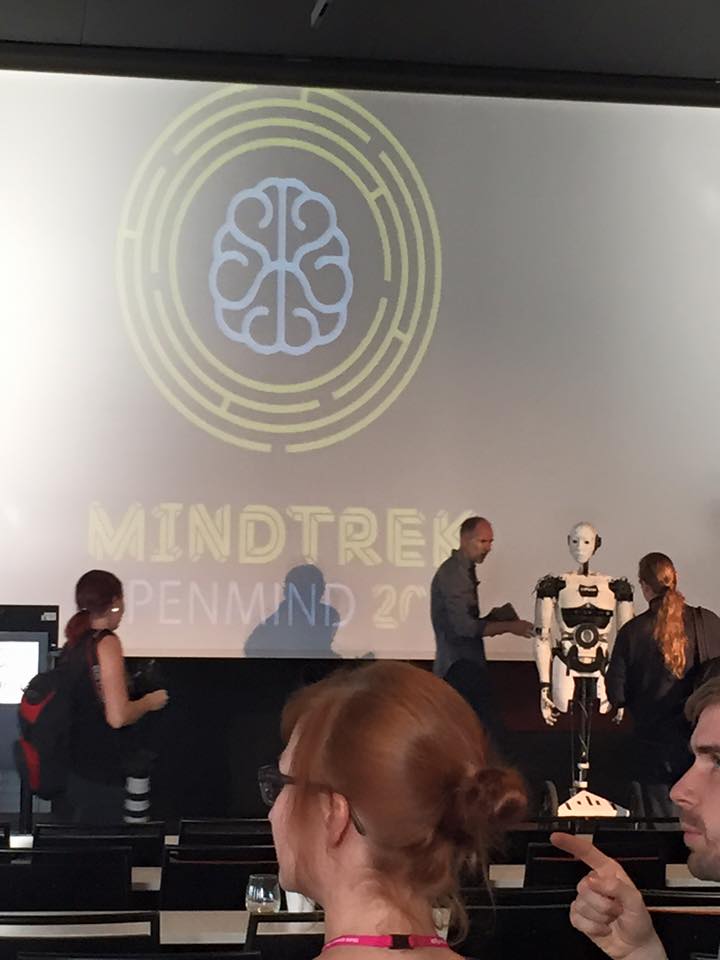
LIGHTNING ROUND:
What did you eat for breakfast today?
Cottage cheese and olives. Green olives with pimentos and cottage cheese in a bowl. It sounds really weird, and I used to think that, but it’s seriously amazing.
What was the last movie you saw?
Stargate Ark of Truth. Part of a seriously dedicated effort to watch all of the Stargate franchise in order.
If you had one item in the zombie apocalypse, what would it be?
Sword, because you can cut off zombie heads without gunshot noises.
Best decision you ever made?
Going to Richmond for undergrad, while there I made the types of friends I needed to make me the person I am today.
Best advice you’ve ever gotten?
Probably what my mom told me about how things were going to be difficult when I came back from London. It wasn’t advice, but I liked knowing that someone warned me, and not feeling like I was crazy.
